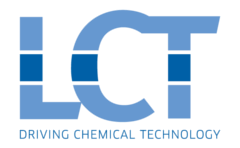Alternative feedstock conversion: process design via experimental kinetics assessment
Aim
Within the area of catalytic reaction engineering, the Laboratory for Chemical Technology aims at recruiting a postdoctoral researcher with a background on heterogeneously catalysed kinetics, preferably both from the experimental and the modelling perspective. This position will give the applicant the opportunity to perform own research while taking an active role in coaching team members.
Context
Hydroformylation is a CO insertion reaction to selectively convert olefins into aldehydes and/or alcohols. In the area of plastic waste valorization, the upgradation of pyrolysis oils into high quality waxes by functionalizing the heavy olefins is currently a hot topic. It is one of the corner stones of the P2PC (Plastics to Precious Chemicals) Catalisti project [1] with the ambition to strengthen the position of Flanders in a circular economy. The same reaction also serves the purpose of selectively functionalizing a short olefin such as ethylene among a mixture of small hydrocarbons and light gases, aiming at a more straightforward recuperation of the ethylene produced via oxidative coupling of methane. This is one of the major ambitions of the H2020 C123 project [2] in which Ghent University is teaming up with SINTEF [3], a Norwegian research organization, for the coordination and scientific management. Ultimately the production of C3 products in general and propylene in particular is aimed at.
We are looking for a post-doctoral fellow to lead an experimental campaign of data acquisition for heavy olefin hydroformylation. This involves the use of our state of the art high throughput kinetics set-up on a reference catalyst. A systematic exploration of the effect of the operating conditions on the hydroformylation kinetics is to be pursued. As an outcome, a detailed insight in the reaction kinetics is expected under the form of a (micro)kinetic model. In parallel, the post-doc is expected to actively take up a role in coaching at least one PhD student. A best match will be pursued accounting for the specific background of the candidate.
- PhD in Chemical Engineering, preferably with a focus on reaction chemistry and catalysis.
- Hands-on experience with (intrinsic) kinetics measurements
- Modelling and simulation expertise, involving numerical methods, regression, programming
- Experience in coaching of students is regarded as an extra asset.
